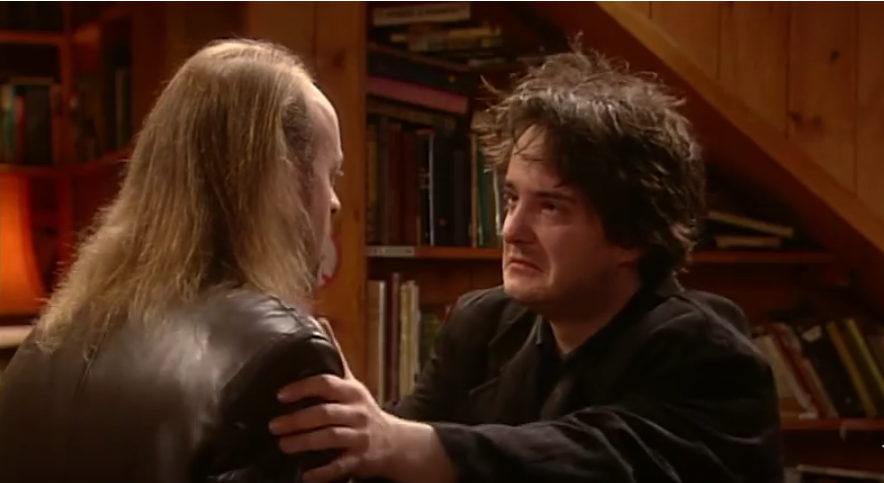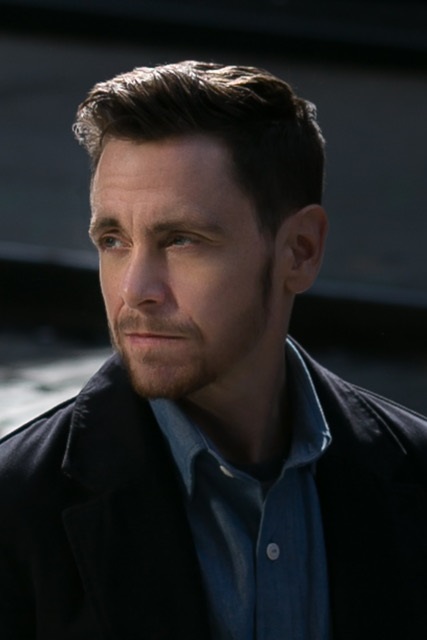 |
| photo: Beowulf Sheehan |
Jordy Rosenberg is the author of the debut novel Confessions of the Fox
(One World/Random House, June 26, 2018) and a professor of 18th-century literature and queer/trans + critical theory at the University of Massachusetts-Amherst. He lives in New York City and Northampton, Mass.
On your nightstand now:
Simone White's Dear Angel of Death.
Dear Angel is more than a book. It is a pulsing nebula of poetry and theory. I went to the launch of Dear Angel, and it was probably the most astonishing poetry reading I've ever been to. Now I am reading it out loud to myself.
In general, I often don't read in a continuous way; rather, I fixate and fester on certain passages/ideas/lines. White's book has me fixated on her theories of intertextuality, which she describes at one point as a relation of past to present that "herald[s] the possibility of... mutual release from the antecedent's conditions of possibility," as well as her lyric delineation of climate change ("I have come to understand ecological disaster in these limited/terms, as fallen evening..."), and the ongoingness of the work of emancipation from the destructiveness of racial capitalism ("what if/my own being/broken/is the new law").
I think I'd like to leave my nightstand-list at that for now. I'm feeling very monogamous with Dear Angel at the moment.
Favorite book when you were a child:
The book I "read" the most as a child was the illustrated guide to how babies are made, Where Did I Come From?, which my parents kept on the living room shelf. I believe they intended to introduce my sister and me to it when they deemed us ready, however they really dragged their feet about this. Meanwhile the book sat on the shelf, just out of reach, tantalizing me. I finally took matters into my own hands, sneaking out of bed and creating a pillow-ladder to reach this gem. I poured over it nightly for maybe a week. One night I returned to find it altered--my parents had realized I'd been reading it, and in what I can only assume was panic, ripped out all the relevant pages. The new version of the book left me wondering for many years if I had just dreamed up the dirty parts.
Your top five authors:
I'll just name five authors I taught this year to blow students' minds:
Ari Banias
Samuel Delany
Daniel Defoe
Karl Marx
Kai Cheng Thom
Book you've faked reading:
I faked reading Thomas Pynchon for a long time until I read Mason and Dixon and became obsessed with the way he uses weather to mark the passage of time. Then I read some other Pynchon as well, but often mostly for the scenes with weather in them.
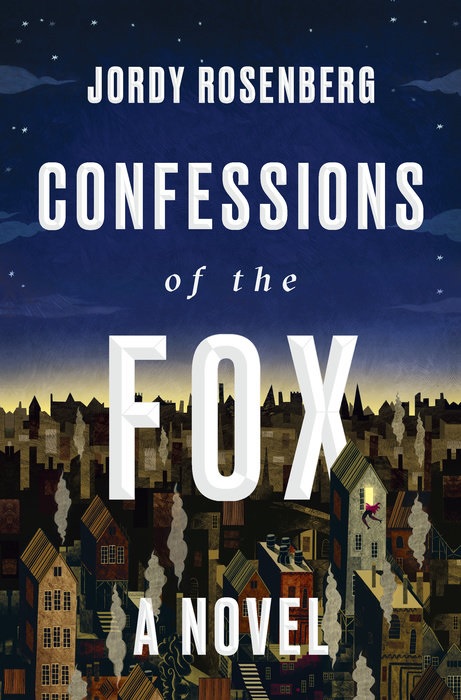 Book you're an evangelist for:
Book you're an evangelist for:
It's not necessarily the book I'd want myself to be an evangelist for, but I have found myself extolling the sex scene (the "Opus 40" chapter) from William Vollmann's Europe Central on numerous occasions.
Book you've bought for the cover:
I think I did this with Neil Gaiman's Sandman in the '90s. I want to love graphic novels but, with the exclusion of Victor LaValle's amazing Destroyer series (which I bought and revere because I am a huge Victor LaValle fan) and the Brian Vaughn/Fiona Staples Saga series (which a friend turned me onto and which I devoured in two days straight), I haven't figured out how to read them.
Book you hid from your parents:
Clearly there was a mutual book-hiding thing going on between me and my parents. Perhaps in retaliation for their censoring Where Did I Come From?, I managed to trick them into buying me a book--the name of which I now forget, but which was helpfully opaque enough not to give away its contents--about a convent of nuns who enter into a sexual relationship with some kind of evil monster god. I grew up in New York City, and we had these radiator covers which created small nooks where a kid might hide something. I kept this book inside the radiator, along with many other weird things.
Book that changed your life:
Reading Tisa Bryant's Unexplained Presence was a life-event, for sure.
Unexplained Presence is a brilliant work of ekphrastic writing that interrogates the otherwise "unexplained" appearance of Black figures in European visual art, writing and film. Through breathtaking prose, Bryant gives life to figures otherwise suppressed or exploited by the compositions in their original form. In the preface, she describes her process as observing something that is "hidden in plain sight." The unremarked function of black figures in European art, she says, constitutes "a double-sided sleight of hand... between the maker and the receiver of the work.... Like watching two people (lovers? spies?) silently mouthing words to each other from across a crowded room...."
There's a million amazing things about this text, and one of them is the way that Bryant intensifies ekphrasis into a whir of theory, critique and historiography. And the language. Each sentence is so painstakingly composed, so startling in its word choice and formally distinctive. The sentences become geometric.
Reading this book really upped the stakes for me of writing in general. Bryant leaves no stone unturned. Not in terms of questions of racialization and representation. Not in terms of the weight and presence of history on the present. Not in terms of what sentences can do. I knew when I read it that I could never equal this brilliance. But I was provoked by it to work harder, to try not to let sentences rest. I didn't succeed at this in any way, but Unexplained Presence is a book that stands as a horizon of thought and practice.
Favorite line from a book:
"And the history of this, their expropriation, is written in the annals of mankind in letters of blood and fire."
In Capital, Karl Marx is describing the ways in which the stories of marginalized and exploited people are left out of official history books, but the mark that these stories leave on history is indelible just the same. You just have to learn new reading practices; you have to learn how to read for blood and fire.
Five books you'll never part with:
Brenna Bhandar's Colonial Lives of Property. I'm cheating because it hasn't come out yet; but Brenna is a friend, collaborator and colleague, and I am obsessed with the force and eloquence with which she analyzes the birth of private property and its ongoing devastating effects. This book is going to be precious to me and many other people, too.
Samuel Delany's About Writing. A trusty, indispensable, prismatic book on writing by one of my all-time favorite authors.
Andrea Lawlor's Paul Takes the Form of a Mortal Girl. The first novel by my best friend; this book is a genius generic mash-up between something like a queer literary realism that has its heritage in Holleran (the late-night novel, the scavenger queer dance floor novel), Feinberg (the bar novel, the novel of queer labor and the labor of queer embodiment) and maybe even also Kerouac (the road novel), and a fabulist neofolklore experimental interruption of this realism. I stand in awe.
China Miéville's The Scar. I lived inside this one for a very magical period of time.
Sofia Samatar's Monster Portraits. I cannot handle the genius of Sofia Samatar. For me, this book--which Samatar describes as "speculative memoir"--is a kind of encrypted blueprint that makes visible the centrality of embodiment to the often abstracted discourse of resistance. The body is not so much restored to the text of revolution by monsters, as it is torn from inside that text. By monsters, it (the body) is made manifest.
Book you most want to read again for the first time:
Judith Butler's
Gender Trouble. Actually, I wrote
a whole essay about the impossibility of reading this book again for the first time.
Writer I most embarrassed myself in front of this year by fawning at too-great length after their reading:
Leni Zumas
 The Brain Lair Bookstore, a children's bookstore with a focus on diversity, inclusivity and education, has opened in South Bend, Ind., WSBT 22 reported. The store features books by and about people of color for children and teens, along with a small selection of books for adults.
The Brain Lair Bookstore, a children's bookstore with a focus on diversity, inclusivity and education, has opened in South Bend, Ind., WSBT 22 reported. The store features books by and about people of color for children and teens, along with a small selection of books for adults.










 Finley's Fiction
Finley's Fiction
SHELFAWARENESS.1222.T1.BESTADSWEBINAR.gif)
 By a vote of 297-114, the U.S. House of Representatives
By a vote of 297-114, the U.S. House of Representatives  In October, the American Booksellers Association is offering its
In October, the American Booksellers Association is offering its 

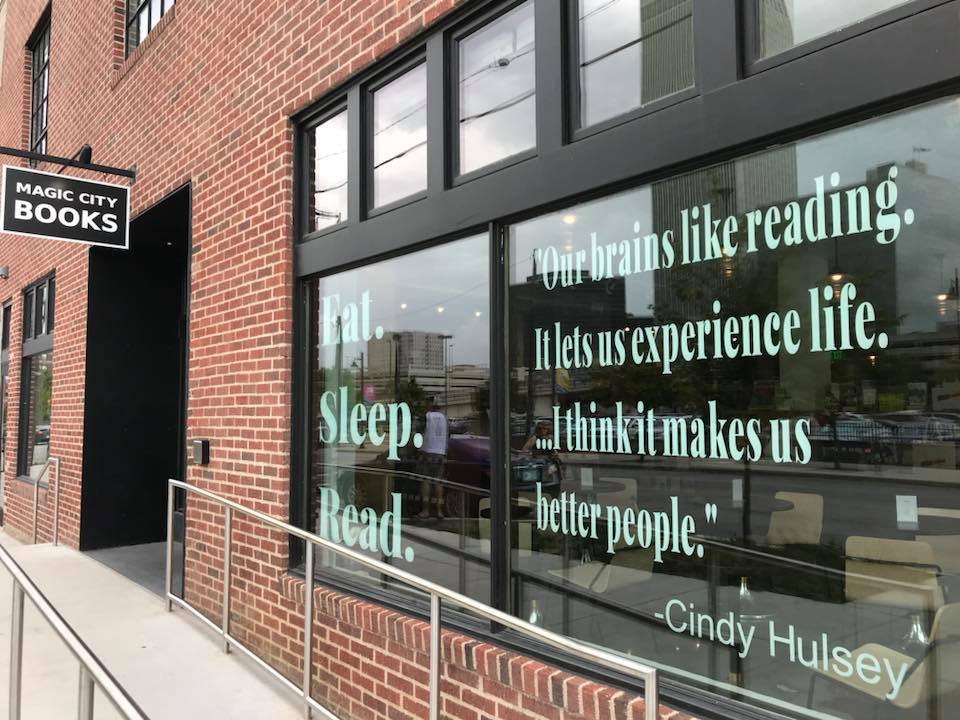 Posted on Facebook by
Posted on Facebook by 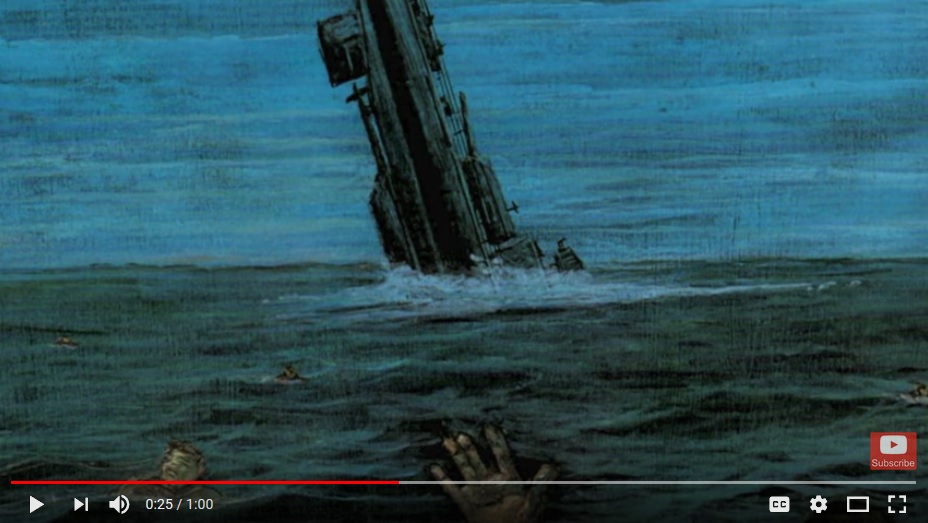 Indianapolis: The True Story of the Worst Sea Disaster in U.S. Naval History and the Fifty-Year Fight to Exonerate an Innocent Man
Indianapolis: The True Story of the Worst Sea Disaster in U.S. Naval History and the Fifty-Year Fight to Exonerate an Innocent Man
 Book you're an evangelist for:
Book you're an evangelist for: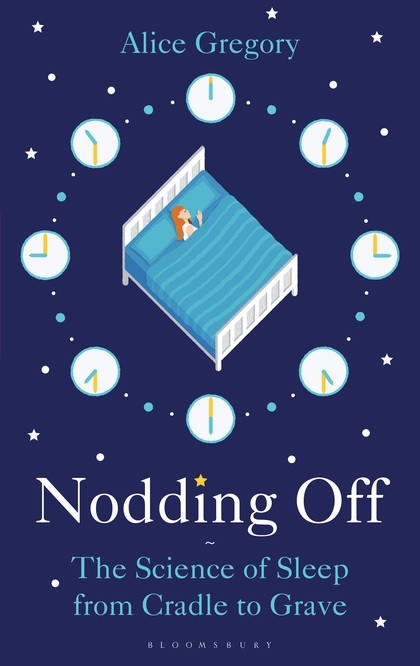 British sleep researcher Alice Gregory shares her extensive knowledge and passion for the science of sleep in Nodding Off. She begins with her own story: as a sleep-deprived psychiatry student at Oxford University, Gregory was deeply affected by a lecture conducted by an American psychology professor who stressed how "slumber is essential to our waking existence" and how often the importance of sleep is underestimated.
British sleep researcher Alice Gregory shares her extensive knowledge and passion for the science of sleep in Nodding Off. She begins with her own story: as a sleep-deprived psychiatry student at Oxford University, Gregory was deeply affected by a lecture conducted by an American psychology professor who stressed how "slumber is essential to our waking existence" and how often the importance of sleep is underestimated.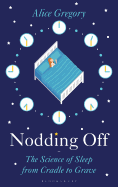
 If you are a bookstore manager or owner, how do you fire bad booksellers?
If you are a bookstore manager or owner, how do you fire bad booksellers?